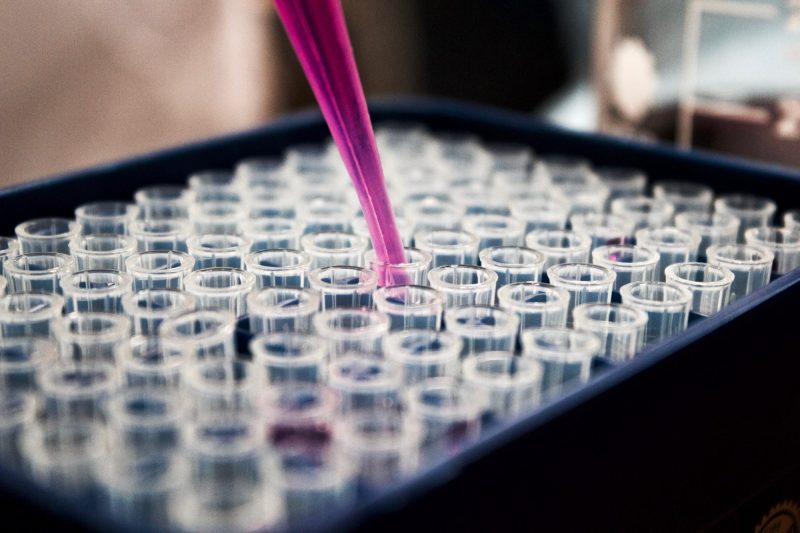Idiopathic pulmonary fibrosis (IPF) is a serious, irreversible respiratory disease
in which the lungs progressively become scarred as lung tissue is flooded with fibroblasts that multiply to produce tissue thickening blocking gas exchange [1]. Patients develop respiratory failure, which worsens over time, but unfortunately this deterioration is not normal as outbreaks of the disease often occur [2]. The etiology of the disease is currently unknown, although several predisposing factors have been identified, such as male gender, exposure to cigarette smoke, heredity, viral infections, and comorbidities such as diabetes and heart disease [3]. The initial symptoms of the disease are “dry” cough and shortness of breath [1], while therapeutically the goal is to reduce the symptoms and prevent the progression of the disease [4]. Thus, patients receive oxygen therapy and participate in respiratory rehabilitation programs, while lung transplantation is suggested as a final solution [4]. Pharmacologically, patients with IPF are treated with drugs that prevent or reduce the formation of fibrosis and the development of inflammation, and / or immunomodulators [4].
SARS-CoV-2 infection causes a severe and acute respiratory syndrome, which is responsible for long-term hospitalization and intubation of patients, sometimes leading to death [5]. According to the World Health Organization, approximately 89 million people in 218 countries have become ill to date, and about 2 million people have died from COVID-19. Some of the patients with COVID-19 still show symptoms of the disease, even after the virus is no longer present in their body, as their negative tests indicate. Among them, many develop pulmonary fibrosis as a result of pneumonia [5]. Patients suffering from chronic respiratory diseases are considered patients with an increased chance of developing a severe form of the disease, but also people with a high probability of infection [7]. Regarding IPF in particular, it has been observed that people at high risk of developing IPF belong to the same population groups as those with a high risk of being infected with SARS-CoV-2 [7]. This fact shows that patients with IPF need to be treated differently, compared to other patients with lung diseases even with diseases of the same category, ie interstitial lung diseases. In addition, IPF study could help to better understand the development of fibrosis in patients with COVID-19 [8].
In addition, it has been recognized that there is an overlap between the pathways leading to fibrosis in patients with IPF and patients with COVID-19 [7, 8]. This fact raises hopes that drug regimens used in patients with IPF can be used in patients with COVID-19 [9]. The pharmacological targets in patients with IPF appear to be similar to those in patients with COVID-19 and can be used either prophylactically to prevent the development of fibrosis or therapeutically in patients who have developed fibrosis after infection. For example, macrophage MBD (methyl-CpG – binding domain proteins) have been found to exhibit modified function in IPF, thus enhancing epigenetic changes in DNA that are implicated in the onset and progression of the disease [9]. These proteins are derived from the expression of genes belonging to target genes whose expression is altered in patients with COVID-19 [10]. In addition, similarities in the pattern of gene expression have been found between patients with COVID-19 belonging to different age groups and individuals with a smoking habit, at different ages or with IPF [10]. These similarities give rise to the hope that on the one hand the way in which SARS-CoV-2 affects the human body will be better understood and thus more effective treatment regimens will emerge and on the other hand possible mechanisms of IPF pathology will be found.
During the pandemic, patients with IPF experienced further difficulties compared to the general population. According to the study by Dimeas et al [11], these patients experienced problems that worsened their quality of life and in some cases affected the progression of their disease. Patients with IPF experienced more stress as access to health facilities, scheduled medical appointments and rehabilitation units is more difficult [11]. In addition, a fairly large number of clinical trials have been suspended due to the pandemic, leaving patients without a plan to resume their experimental treatment [12]. Elevated stress levels are an aggravating factor for the development of IPF [13], making their even greater increase during the quarantine period during the pandemic particularly difficult for patients [11]. However, infections, hospitalizations and deaths of patients with IPF from SARS-CoV-2 infection or complications of COVID-19 were not observed to increase in Greece [14] and did not show an extremely large increase compared to the general population globally [15]. This fact is probably explained by the observation that patients with IPF are a highly disciplined population group, which literally follows the instructions of the treating physicians and have limited social activity [14]. Thus, they were able to adapt to the difficult conditions with great success, although their quality of life indicators deteriorated, as well as of all people during the pandemic [14, 15].
It is worth mentioning that the technology has contributed significantly to the protection of patients with IPF from COVID-19 in various ways. Patients were able to use telemedicine to communicate with their treating physicians, without the need to travel to a hospital or practice [11, 14, 15]. In addition, their medication, as long as it was regulated and not an experimental formulation, continued, as distribution programs were in place, often including caregivers of people with IPF. Thus, although stress levels increased significantly and individuals were confined to their home, their clinical picture fortunately did not present a significant burden. At the same time, various organizations, global and local, such as the WHO, the NHS, the EODY, the Panhellenic Medical Association, the Hellenic Pulmonary Society, provided plenty of information to patients and their families through posts on the internet and web conferences.
Research on the mechanisms of birth and progression of IPF continues to seek to shed light on the pathology of the disease, and to develop appropriate therapeutic approaches that will help patients cope with the disease. The fact that COVID-19 has several similarities to IPF, combined with extensive research to understand and combat COVID-19, could accelerate developments in the field of IPF management in the coming years. However, this link is reciprocal, as treatment regimens used in IPF survival that improve patients’ quality of life or slow the progression of the disease could help treat and prevent complications in patients with COVID-19.
References
- https://www.nhlbi.nih.gov/health-topics/idiopathic-pulmonary-fibrosis
- IPF – Idiopathic Pulmonary Fibrosis. Breathe (Sheff). 2019 Jun;15(2):153-160. doi: 10.1183/20734735.ELF152. PMID: 31191732; PMCID: PMC6544798.
- Sharif R. Overview of idiopathic pulmonary fibrosis (IPF) and evidence-based guidelines. Am J Manag Care. 2017 Jul;23(11 Suppl): S176-S182. PMID: 28978212.
- Saito S, Alkhatib A, Kolls JK, Kondoh Y, Lasky JA. Pharmacotherapy and adjunctive treatment for idiopathic pulmonary fibrosis (IPF). J Thorac Dis. 2019 Sep;11(Suppl 14): S1740-S1754. doi: 10.21037/jtd.2019.04.62. PMID: 31632751; PMCID: PMC6783717.
- Rai DK et al., Post covid 19 pulmonary fibrosis- Is it reversible? Indian Journal of Tuberculosis, https://doi.org/10.1016/j.ijtb.2020.11.003
- https://www.who.int/emergencies/diseases/novel-coronavirus-2019
- Wigén J, Löfdahl A, Bjermer L, Elowsson-Rendin L, Westergren-Thorsson G. Converging pathways in pulmonary fibrosis and Covid-19 – The fibrotic link to disease severity. Respir Med X. 2020 Nov;2 :100023. doi: 10.1016/j.yrmex.2020.100023. Epub 2020 Oct 9. PMID: 33083782; PMCID: PMC7546672.
- Ojo AS, Balogun SA, Williams OT, Ojo OS. Pulmonary Fibrosis in COVID-19 Survivors: Predictive Factors and Risk Reduction Strategies. Pulm Med. 2020 Aug 10; 2020:6175964. doi: 10.1155/2020/6175964. PMID: 32850151; PMCID: PMC7439160.
- Wang Y, Zhang L, Wu GR, Zhou Q, Yue H, Rao LZ, Yuan T, Mo B, Wang FX, Chen LM, Sun F, Song J, Xiong F, Zhang S, Yu Q, Yang P, Xu Y, Zhao J, Zhang H, Xiong W, Wang CY. MBD2 serves as a viable target against pulmonary fibrosis by inhibiting macrophage M2 program. Sci Adv. 2020 Dec 4;7(1): eabb6075. doi: 10.1126/sciadv.abb6075. Epub ahead of print. PMID: 33277324; PMCID: PMC7775789.
- Maremanda KP, Sundar IK, Li D, Rahman I. Age-Dependent Assessment of Genes Involved in Cellular Senescence, Telomere, and Mitochondrial Pathways in Human Lung Tissue of Smokers, COPD, and IPF: Associations With SARS-CoV-2 COVID-19 ACE2-TMPRSS2-Furin-DPP4 Axis. Front Pharmacol. 2020 Sep 9; 11:584637. doi: 10.3389/fphar.2020.584637. PMID: 33013423; PMCID: PMC7510459.
- Dimeas IE., Sinis SI., Kotsiou OS., Daniil Z. Idiopathic Pulmonary Fibrosis patients’ COVID-19 quarantine; not just a routine. PNEUMON Number 2, Vol. 33, April – June 2020.
- pharmaceutical-technology.com/comment/idiopathic-pulmonary-fibrosis-covid-19/
- van Manen MJ, Geelhoed JJ, Tak NC, Wijsenbeek MS. Optimizing quality of life in patients with idiopathic pulmonary fibrosis. Ther Adv Respir Dis. 2017 Mar;11(3):157-169. doi: 10.1177/1753465816686743. Epub 2017 Jan 1. Erratum in: Ther Adv Respir Dis. 2017 Jun;11(6):245. PMID: 28134007; PMCID: PMC5933652.
- Papiris SA, Bouros D, Markopoulou K, Kolilekas L, Papaioannou AI, Tzilas V, Tzouvelekis A, Fouka E, Papakosta D, Daniil Z, Steiropoulos P, Gogali A, Papanikolaou IC, Xyfteri A, Haritou A, Korbila I, Tomos IP, Loukides S, Bellelli R, Kounti G, Rampiadou C, Karampitsakos T, Dimeas I, Kirgou P, Bompoki A, Vasarmidi E, Loverdos K, Antonogiannaki EM, Blizou M, Bouros E, Kagouridis K, Maniati M, Karakatsani A, Antoniou KM, Manali ED. Early COVID-19 Lockdown in Greece and IPF: A beneficial “impact” beyond any expectation. Eur Respir J. 2020 Dec 17:2003111. doi: 10.1183/13993003.03111-2020. Epub ahead of print. PMID: 33334934.
- https://pulmonaryfibrosisnews.com/information-about-covid-19-for-pulmonary-fibrosis-patients/

RELATED ARTICLES
CONTACT US
____________
greekwomeninstem@gmail.com
Do you have ideas, questions, comments or special requests?
Would you like to highlight your research project or nominate a researcher that you would like to learn more about?
Please write to our email or fill out the form and hit “send”. We will be happy to talk with you!
[contact-form-7 id=”44″ title=”Contact form 1″]
